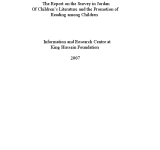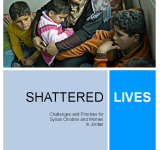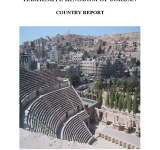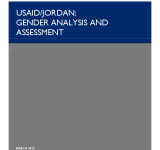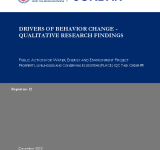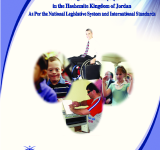والأسرة
With an executive summary on the Syrian refugees situation in Jordan;; the report combines the conclusions of detailed assessments in various areas including as child protection and gender-based violence;; education;; water sanitation and hygiene;; and nutrition and health. It provides a holistic picture of the situation faced by Syrian children and women in Jordan to draw out recommendations for necessary plans of action. Some key findings of the report include growing challenges for water;; sanitation and hygiene situation in Za’atari camp;; several threats to the nutritional status and health of Syrian girls;; boys and women and increasing violence against adolescents. Bringing together the voices of children and women at the camps;; the report examines the situations of Syrian refugees in host communities and refugee camps and finds key recommendations based on them.
The report was published from the World Health Organization/ United Nations Children’s Fund (WHO/UNICEF)’s pilot project to test a method for the rapid assessment of the quality of drinking-water in six countries;; including Jordan;; China;; Ethiopia;; Nicaragua;; Nigeria and Tajikistan. This assessment report aims to develop a tool that would support WHO/UNICEF’s joint program in strengthening the monitoring efforts of the global access to safe drinking water. The analysis of the report is based on the water samples and statistical data that were collected from 1600 drinking water supply sites in 67 clusters. The report finds that drinking water quality is generally high in the distribution network of Jordan and national standards for bacteria complies with the WHO guideline values. It also identifies the sanitary risk factors for Jordanian water supplies including the presence of sewer lines;; old pipes and failure to properly maintain household storage tanks.
The report presents an up-to-date analysis of gender disparities in Jordan to inform development assistance programs by the USAID for the 2013-2017 strategic plan. The assessment report is prepared by the Global Health Technical Assistance Project;; funded by USAID Jordan and therefore;; it is based on a literature review and field work of the 21 focus group discussions held in Amman;; Irbid;; Tafileh and Zarqa. The report establishes that Jordan has begun to transition to a knowledge-based economy with the national advantage as its people. It also points out that despite the investments that have helped address gender equality issues;; Jordan continues to bear low female participation in the labor markets;; gender stereotypes about the role of females and males and conservative cultural norms. The report includes a sector-by-sector analysis;; recommendations;; gender review and an illustrative implementation plan. It concludes with key recommendations on the wide breadth of the USAID Jordan portfolio with a key emphasis on gender issues.
The report aims to understand the outlook of Jordanians;; the key determinants of behavioral change in search for “drivers” that can be used in programs promoting conservation of water or energy and reduction of solid waste. This research was conducted as part of the Public Action for Water;; Energy and Environment Project (PAP);; which aims to encourage water and energy conservation and to support behavior change towards more conservation and efficient practices both at the household level and in the commercial;; industrial and civil society arenas using social marketing behavioral methods. It is based on the qualitative research that focuses on identifying people’s motivations;; needs and desires to help formulating social marketing programs and developing adaptive capacity in individuals and groups. Some of the key questions of the qualitative research include “What are the current coping behaviors and attitudes (psychological;; social;; etc …) of the Jordanian public (disaggregated by gender;; age;; geography and income) in the face of limited water availability and high prices for energy?;; What anticipated consequences may the Government face if stricter scenarios were imposed on water and energy? The report recommends the Ministry of Education to cooperate and introduce regular classes that focus on showing youth the direct impact of water;; energy and environment on their lives and raise awareness and consciousness of children regarding their role in the environment and influence it in a positive way.
This report addressed CEDAW Committee by providing a solid and up-to-date information set and analysis of positive policies and legislation taken for women’s advancement and weaknesses that are delaying progress and sustaining disparities. The report covers six components: 1. Jordan’s reservations on CEDAW;; 2. Harmonization of CEDAW into legislation;; 3. Political representation;; 4. Violent against women;; 5. Equal rights in the family;; 6. Conditions of vulnerable and marginalized women. It also provides an overall assessment of the six components covering 3 areas: assessment of the official efforts towards the implementation of CEDAW;; also;; assessment of the civil society efforts and strategies towards monitoring Jordan’s commitment to obligations;; and suggested recommendations for the new concluding observations.
This study aims to demonstrate the rights of disabled people stated by the legislator. The study shows the extent to which state and civil society institutions adhere to the implementation of applicable legislations related to people with disabilities.
